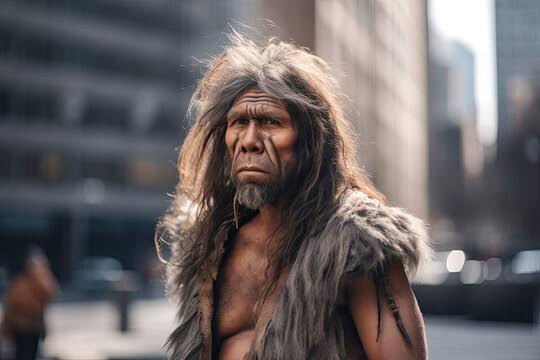When our ancient ancestors embarked on their journey out of Africa over 50,000 years ago, they encountered Neanderthals, who already shared some of their genes. Today, Homo sapiens are the only surviving species of humans, but the past tells a different story. Around 400,000 years ago, our Homo sapiens ancestors thrived in East Africa while Neanderthals dominated Eurasia. These populations, separated by vast distances and limited to foot travel, eventually met and intertwined their destinies.
Who Were the Neanderthals?
Neanderthals were a distinct species of ancient humans who lived across Eurasia. Unlike our Homo sapiens ancestors, who originated in Africa, Neanderthals coexisted with early Homo sapiens for thousands of years, leading to significant interactions between the two species.
The Genetic Legacy of Neanderthals
The sequencing of the Neanderthal genome in 2010 unveiled groundbreaking evidence of interbreeding between Neanderthals and Homo sapiens. This genetic exchange has left a profound imprint on the DNA of modern non-African populations, shedding light on human evolution and the emergence of diverse genetic traits.
The Mystery of Neanderthal Disappearance
The disappearance of Neanderthals shortly after Homo sapiens arrived in their territories remains a topic of scientific debate. Some theories suggest direct competition between the two species, while others propose more complex scenarios involving cultural exchanges and environmental pressures.
Reciprocal Gene Flow
Recent studies have delved into the extent of Homo sapiens DNA in Neanderthal genomes, highlighting the dynamic and reciprocal gene flow between these ancient human groups. This ongoing research underscores the intricate interactions that shaped the evolutionary paths of both species.
African Genetic Diversity and Early Human Migration
Current research into African genetic diversity aims to uncover more about early human migration patterns, including possible movements back to Africa following encounters with Neanderthals. These studies promise to deepen our understanding of our shared evolutionary history, revealing the complexity of ancient human interactions and migrations.
Conclusion
The genetic legacy of Neanderthals continues to influence modern human populations, offering invaluable insights into our evolutionary past. As scientists unravel the mysteries of our ancient ancestors, we gain a greater appreciation for the intricate web of interactions that shaped humanity’s journey through time.




